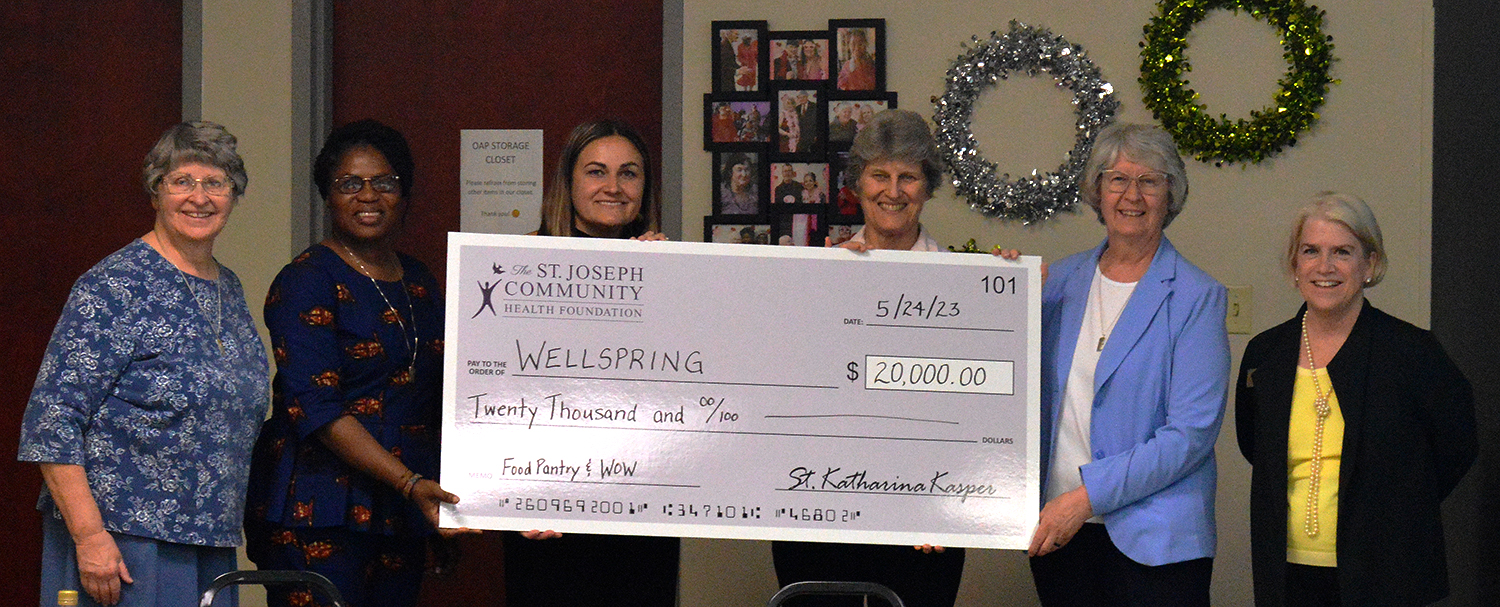Spring grants address growing nutrition, mental health and immigration needs

The St. Joseph Community Health Foundation is investing $585,800 in local nonprofits and grassroots organizations that work with low-income and vulnerable residents.
The Board of Directors recently approved the latest round of grants, bringing the total number of grants awarded since January 1, 2023 to 59.
Since the St. Joe Foundation was established in 1998, it has awarded more than $25 million through more than 1,700 grants to approximately 280 organizations.
The St. Joe Foundation is sponsored by the Poor Handmaids of Jesus Christ and invests in programming and operations that improve the health and well-being of vulnerable residents in four impact areas: Refugees & Immigrants, Nutrition & Food Insecurity, Prenatal & Infant Care and Access to Quality, Affordable Healthcare.
“The high inflation we are seeing is increasing demand for nutritious food, and food banks and pantries are reporting they are unable to keep up. Additionally, the need for culturally centered and affordable mental health services continues to grow,” says Meg Distler, St. Joe Foundation executive director. “Meanwhile, the number of immigrants and refugees coming to our community is increasing and so is the need for services to support them. Our staff, grants committee, and Board of Directors are grateful to be able to support our nonprofit partners as they work to address these critical issues.”
The majority of grants awarded since January 2023 are part of the spring grant cycle, which just concluded. Those grants total $528,000. Another $57,850 was awarded to nonprofits and churches who will offer the Our HEALing Kitchen cooking and nutrition classes, as well as several smaller “mini-grants” to grassroots organizations.
Spring 2023 grants include:
- Alive Community Outreach to support programming that is focused on cultivating a community of nonviolence.
- Bridge of Grace Compassionate Ministry to support the early childhood education initiative.
- Cancer Services of NE Indiana to support creation of oncology nutrition videos, which will help make nutrition programs more accessible to clients and expand the Survivors Academy Online.
- Catholic Charities Fort Wayne South Bend to expand immigration services through increased staffing, training and certifications for case managers.
- Christian Community Healthcare to provide access to free, quality healthcare services for vulnerable families in rural northeast Allen County.
- Community Transportation Network to support a grocery rides program and specialized medical transportation for low-income residents, people with disabilities and seniors.
- Courageous Healing to help offset the cost of providing culturally centered counseling services for low-income individuals and families.
- Easterseals Arc of Northeast Indiana to help provide access to free or low-cost healthcare for people with intellectual and developmental disabilities.
- Fort Wayne Medical Education Program/Family Medicine Center for help providing access to quality, affordable healthcare to low-income families in Allen County.
- Greater Fort Wayne Inc. to facilitate a strategic plan focused on improving economic and social inclusion for immigrants and refugees in the community.
- Headwaters Counseling to provide high-quality mental health services to low-income residents.
- Hope Alive to support a part-time mental health counselor to serve women in the agency’s shelter as well as low-income residents from the community.
- League for the Blind & Disabled to assist low-income people with disabilities with financial assistance to improve the quality of their lives and help them maintain their independence.
- Lutheran Agency for Missions to Burmese (LAMB) to provide medical advocacy and health promotion for Burmese people.
- Matthew 25 Health and Care to support medical equipment to serve uninsured Allen County residents.
- Mental Health America of NE Indiana for the Adult Guardianship Program, which serves adults who are mentally incapacitated due to intellectual and developmental disabilities, age-related disorders, mental illness, dementias, traumatic brain injuries and other chronic disorders.
- Miss Virginia’s Food Pantry to help purchase food for the balanced and nutritional food program.
- New Mercies Ministries to support programming that offers safe, temporary homes for children and support services for parents in crisis.
- Northeast Indiana Positive Resource Connection to provide free HIV and Hepatitis C testing, access to Pre-Exposure Prophylaxis (PrEP) for high risk HIV negative individuals, and case management services to persons living with HIV/AIDS and Hepatitis C.
- Out of a Jam to help rescue food from the waste stream and repurpose it into high-quality, nutritious meals for low-income residents as part of the Feeding Fort Wayne initiative.
- Redemption House Ministries to support health and wellness programs for residents of the transitional shelter for women.
- SCAN for intervention services, to give families the clinical therapy services they need to heal from the trauma of abuse and neglect.
- St. Joseph Missions to support the 24/7 emergency shelter for single, homeless women.
- University of Saint Francis to support the Public Health Fellow program, which will engage students to bring about creative solutions and problem solving that will improve public health.
- Society of St. Vincent de Paul for the food and nutrition program supporting multiple food pantry locations.
- Wellspring Interfaith Social Services to support food programming, including the food pantry and Wellspring on Wheels.
- YWCA Northeast Indiana to provide access to bilingual domestic violence advocacy services.
- Young Life to support programming that assists pregnant and parenting teens.
Recent Stories
- Merry Christmas from the St. Joseph Community Health Foundation!
- St. Joe Foundation awards $2,652,998 to local agencies serving vulnerable individuals in Allen County, IN
- Prenatal & Infant Care Luncheon: a year of connection and learning
- Nourishing bodies and spirits: the impact of the Society of St. Vincent de Paul food and nutrition program
- Supporting sustainability in local food networks to improve access to nutritious food
